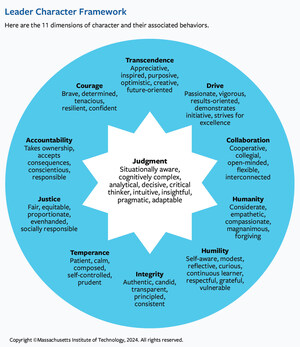A new research meta-analysis in MIT Sloan Management Review indicates that brushing aside negative emotions at work can cost organizations millions of dollars in reduced effectiveness
Results also show that responding to negative emotions early on is generally easier, more effective, and less expensive
CAMBRIDGE, Mass., March 14, 2017 /PRNewswire/ -- A new analysis released today by MIT Sloan Management Review, highlights research that reveals that failing to face up to negative emotions at work results in a measurable loss of productivity and employee engagement. The article cites data from several recent studies to support this claim, including one that found that "20% [of respondents] reported that they have never, in their entire careers, had a single boss who managed negative emotions effectively."
The article, "The Smart Way to Respond to Negative Emotions at Work," is authored by Christine Pearson, a professor of global leadership at the Thunderbird School of Global Management at Arizona State University in Glendale, Arizona. In addition to the analysis, Pearson offers guidelines for leaders who want to confront negative emotions head on.
Pearson has found in her research that negative emotions tend to replicate and grow in an organization, often without employees being completely aware of it. "In the worst cases, managers have described a cloud of negative emotions that can spread throughout the workplace, making it more difficult to recruit and retain the best employees."
The article suggests several ways to step up to negative emotions:
- Tend to signals of negative emotions early. Watch for warning signs across the team. Are individuals putting in fewer hours or less effort? Has engagement dwindled? Are employees reluctant to take initiatives beyond their own tasks? These behaviors can signal underlying negative emotions.
- Seek out troubled employees. Tune in to employees' responses to your questions. Consider whether an employee's behaviors and expressions are unusual or out of sync with the rhythm of your conversation. Listen for veiled references to negative emotions.
- Resist the urge to fix others' problems for them. Be quick to listen and offer support but slow to advise. Ask questions to help employees determine what the best approaches would be and why.
The author concludes: "In good times, it's easy to celebrate success and happiness. In darker times, those who step up to manage negative emotions stand out as they manage their own reactions to stress, respond to the negative emotions of others sensitively and effectively, and face reality — seeing things as they fully are."
About MIT Sloan Management Review
A media company based at the MIT Sloan School of Management, MIT Sloan Management Review's mission is to lead the conversation among research scholars, business executives and other thought leaders about advances in management practice, especially those shaped by technology, that are transforming how people lead and innovate. MIT Sloan Management Review captures for thoughtful managers the creativity, excitement and opportunity generated by rapid organizational, technological and societal change.
Contacts:
Deborah Gallagher
MIT Sloan Management Review
617-253-3967
[email protected]
SOURCE MIT Sloan Management Review
Related Links
WANT YOUR COMPANY'S NEWS FEATURED ON PRNEWSWIRE.COM?
Newsrooms &
Influencers
Digital Media
Outlets
Journalists
Opted In






Share this article